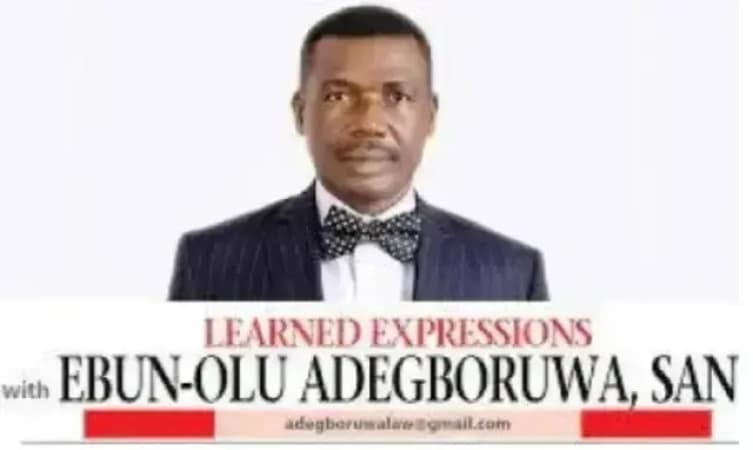
INTRODUCTION
By virtue of section 235 of the Constitution of the Federal Republic of Nigeria, 1999 as amended, the Supreme Court of Nigeria is supreme in all things. It has the final judicial say in any matter and its word is law on any legal point. Recently, the Court spoke on many issues.
In A-G Abia State v Imo Transport reported in (2025) 16 NWLR (Pt.2021) 435 at 470-471, the Supreme Court spoke to all Governors of the States on the issue of multiple taxes. In this case, the Abia State Government imposed a N4,200,000:00 physical planning and infrastructural development levy on the respondent who did not pay the levy within the time stipulated for its payment. Consequently, the 3rd appellant commenced criminal proceedings to enforce payment of the levy by a complaint to the Magistrate’s Court that the respondent’s refusal or neglect to pay the levy was an offence punishable under section 18 of the Abia State of Nigeria Infrastructural Development Fund Board Law, No. 8 of 2010 (as amended). Acting on the 3rd respondent’s complaint, the Magistrate issued a criminal summons against the respondent to appear before him to answer the 3rd appellant’s complaint. On being served the summons, the respondent commenced a suit by originating motion to challenge the imposition. After considering the originating motion, the affidavit and written address supporting it and the appellants’ written address in opposition of the motion, the trial court, in its judgment, held that the Abia State House of Assembly had the legislative power to enact the provisions of the Abia State of Nigeria Infrastructural Development Fund Board Law No. 8 of 2010, and that its provisions were consistent with the Constitution of the Federal Republic of Nigeria 1999 and the Taxes and Levies (Approved List For Collection) Act Cap. T2, Laws of the Federation, 2004. The trial court held that the originating motion failed in its entirety and refused to grant all reliefs claimed. Dissatisfied with the judgment of the trial court, the respondent appealed to the Court of Appeal, which allowed the appeal, set aside the judgment of the trial court, found the originating motion as successful, and granted all reliefs sought by the respondent. The appellants were dissatisfied with the judgment of the Court of Appeal, and they appealed to the Supreme Court.
The Effect of Imposing Fees on Citizens for Development of Public Infrastructural Facilities in a State despite the State’s Receipt of Huge Monthly Allocations from Federation Account for the same Purpose:
Per AGIM, J.S.C. at pages 470-471:
“The facts are common knowledge, not open to question and do not require proof that Abia State since 1998, receives huge amounts of monies in billions of naira monthly from the Federation Account by virtue of Section 162(3) and of the 1999 Constitution for the development of inter alia its public infrastructure such as schools, hospitals, roads, urban planning and development facilities, that these huge receipts over the years have not reflected on the condition of the State’s physical planning and infrastructural development, that the public infrastructure have remained as sham as there were before 1998, that the situation makes it reasonable to believe that the huge allocations were not used to develop the State. After refusing to use the huge allocations to develop the State, the Abia State Government seeks to raise funds from the tax and rates paying citizens for the infrastructural development of the State by making the Abia State of Nigeria Physical Planning and Infrastructural Development Fund Board Law. This is a clear indicator that governance is not for the wellbeing of the people and that the Government considers itself as the sovereign and not the people who constitute the State whose agent it is by virtue of S. 5(2)(a) of the 1999 Constitution. The defining feature of a democracy is that sovereignty belongs to the people from whom the government derives all its powers and authority which must be exercised for the benefit of the people. The imposition of fees on the citizens for the development of public infrastructural facilities that would have been easily provided by the huge monthly allocations the State Government have been receiving all these years, violates the sovereignty of the people of Abia State and defeats the objective of S. 162(3) and 1999 Constitution.”
DISPLAY OF JUDICIAL RASCALITY BY LOWER COURTS
In the case of Owoniyi v Aiyewunmi reported in (2025) 16 NWLR (Pt. 2011) 237 at 290-291, the Supreme Court sounded a note of warning to judges of the lower courts who refuse to follow precedents.
“The 1st – 4th respondents commenced an action on 17th September 2018 at the High Court of Kogi State against the appellant and the 5th and 6th respondents as the 1st to 3rd defendants respectively to challenge the appointment, approval and recognition of the appellant as the Obaro of Kabba. The appointment of the appellant was approved as the new Obaro of Kabba by the 5th respondent vide a letter dated 19th July 2018. The Obaro of Kabba (Filling of Chieftaincy Vacancy, Declaration of Indigenes of Kabba/Owe Land, Guidelines for the Rotation of Ololu Titles and Other Miscellaneous Provisions) Edict No. 12 of Kogi State, 1995 pursuant to which the appellant was appointed the Obaro of Kabba was promulgated on 15th December 1995 and was deemed to have commenced on the same date. The 1st – 4th respondents sought a declaration that the Ilajo ruling family is the sole ruling family of Kabba to the exclusion of any other house and other reliefs. The appellant filed a notice of preliminary objection challenging the jurisdiction of the trial court to hear and determine the suit on the grounds that it was premature as the first to the fourth respondents failed to exhaust the domestic remedies prescribed under section 6(1) and of the Chiefs (Appointment, Deposition and Establishment of Traditional Councils) Law of Kogi State, 2006; and that the action was statute-barred under and by virtue of section 2(a) of the Public Officers Protection Law of Kwara State (as applicable in Kogi State) and section 18 of the Limitation Law of Kwara State (as applicable in Kogi State). After hearing the preliminary objection, the trial court in its ruling upheld the preliminary objection on the second ground and dismissed the suit on the ground that it was statute-barred. It discountenanced the 1st – 4th respondents’ contention that Edict No.12 of Kogi State, 1995 was in abeyance until the 5th respondent took the step and the processes leading to the appointment of the appellant as the Obaro of Kabba and were therefore not estopped from challenging it. Aggrieved by the ruling of the trial court, the 1st- 4th respondents appealed to the Court of Appeal and the appellant also cross-appealed. The Court of Appeal allowed the appeal and dismissed the cross-appeal. Dissatisfied, the appellant appealed to the Supreme Court.
THE OPERATION OF DOCTRINE OF JUDICIAL PRECEDENT:
Per ABIRU, J.S.C. at pages 290-291:
“The records of court show that the decisions of this court in the cases of Ikine v. Edjerode (supra) and Esuwoye v. Bosere & Ors (supra) were cited and brought to the attention of the High Court of Kogi State, but they were ignored and discountenanced by the court for very flimsy reasons. This was a clear case of judicial impertinence and judicial rascality. This failure of the High Court of Kogi State to pay true fidelity to the doctrine of judicial precedent, and most likely with encouragement of the learned counsel to the appellant for selfish and self-centred reasons, has led to a waste of the seven years period that this case has spent travelling from the High Court to this court on preliminary matters. It is hoped that this incident is an isolated issue, as this court might be compelled to recommend sanctions against such intransigence in future.”
ON NEGATIVE EFFECTS OF COPY AND PASTE
In the case of Patrick v COP, reported in (2025) 16 NWLR (Pt.2011) 323 at 349-350, the Court deprecated the style of copy and paste. On the 5th of February, 2015 a report of the discovery of an unidentified corpse found inside the hotel room rented by the appellant at Blue House Hotel was made at the Saminaka Police Station. A Police team proceeded to the hotel room, forced the door of the room open and found the corpse with a gunshot wound to the lower abdomen and three live ammunition in his inside pocket. Investigation by the Police revealed that the appellant was with the deceased at the time of the shooting and that the appellant thereafter locked up the room and ran away with a locally made pistol used in the shooting. The appellant was thereafter arrested for the offences of culpable homicide punishable with death and for unlawful possession of firearms; while the appellant stated that the arrest took place on the 5th of February, 2015, the respondents maintained that it took place on the 11th of February, 2015. The appellant was detained for investigation and during which time he volunteered his extra judicial statement wherein he admitted being with the deceased person at the time the shooting and killing the deceased took place and he led Police detectives to where he hid the locally made pistol. The appellant was arraigned before the Chief Magistrate Court in Kaduna on a First Information Report on the 19th of May, 2015 for the offences of culpable homicide punishable with death and for unlawful possession of firearms. The Chief Magistrate Court remanded the appellant at theKaduna Prisons pending the issuance of legal advice from the office of the second respondent. The High Court noted that the offence of culpable homicide punishable with death was not a bailable offence as it attracted capital punishment, except where the accused person places special or exceptional circumstances before the court, and which the appellant failed to do. The High Court further noted that apart from bare assertions by the appellant as to infringement of his right to dignity of the human person, he failed to supply sufficient particulars of the alleged inhumane treatments meted to him in the course of his arrest and detention. The High Court concluded that the case of the appellant was unmeritorious and it dismissed the same. Dissatisfied with the judgment of the High Court, the appellant appealed to the Court of Appeal. The Court of Appeal heard the appeal and dismissed the same. Still dissatisfied with the judgment of the Court of Appeal, the appellant appealed to the Supreme Court.
The Attitude of Court to Act of Legal Practitioners who Copy and Reproduce Brief of Another Legal Practitioner:
Per ABIRU, J.S.C. at pages 349-350:
“Reading through the briefs of arguments of counsel to the first respondent and counsel to the second respondent, it is clear and obvious that they are a replication of one another, word for word and case law authority for case law authority. Noting that the brief of arguments of counsel to the second respondent was filed earlier in time, it is the counsel to the first respondent that must have done the copying and reproduction. Counsel did not even make an effort to reframe or reorganize the arguments; he made no input and merely repeated everything. This is totally dishonest, unethical and unprofessional. It is a reflection of the depravity that is bedeviling the practice of law today. This attitude and approach of counsel to the first respondent in his brief of arguments is an insult to everything decent in the legal profession. This court shall make no other reference to his brief of arguments in this judgment.”
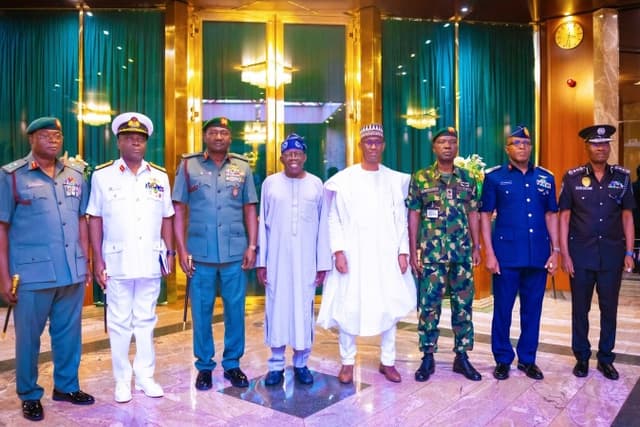
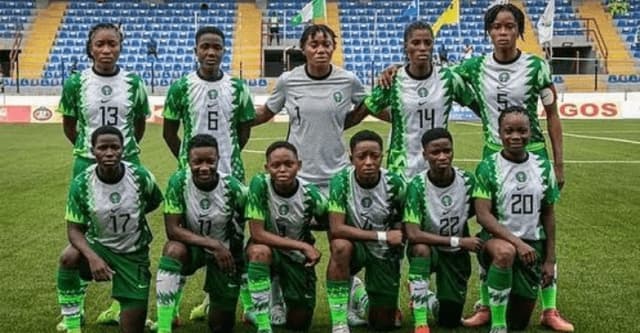

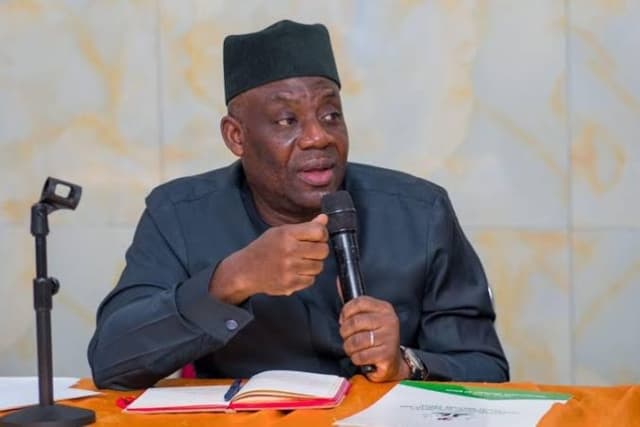

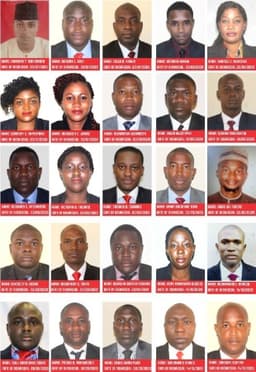


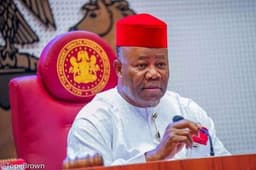

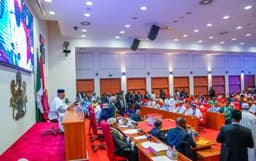





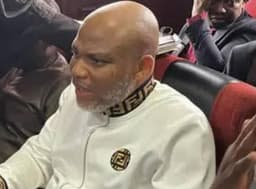

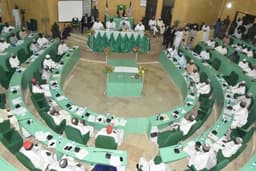
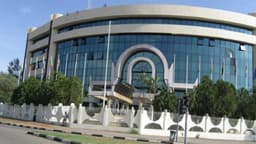

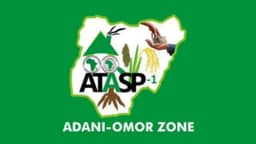

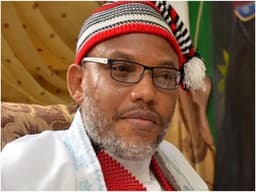


NEWS EXPRESS is Nigeria’s leading online newspaper. Published by Africa’s international award-winning journalist, Mr. Isaac Umunna, NEWS EXPRESS is Nigeria’s first truly professional online daily newspaper. It is published from Lagos, Nigeria’s economic and media hub, and has a provision for occasional special print editions. Thanks to our vast network of sources and dedicated team of professional journalists and contributors spread across Nigeria and overseas, NEWS EXPRESS has become synonymous with newsbreaks and exclusive stories from around the world.